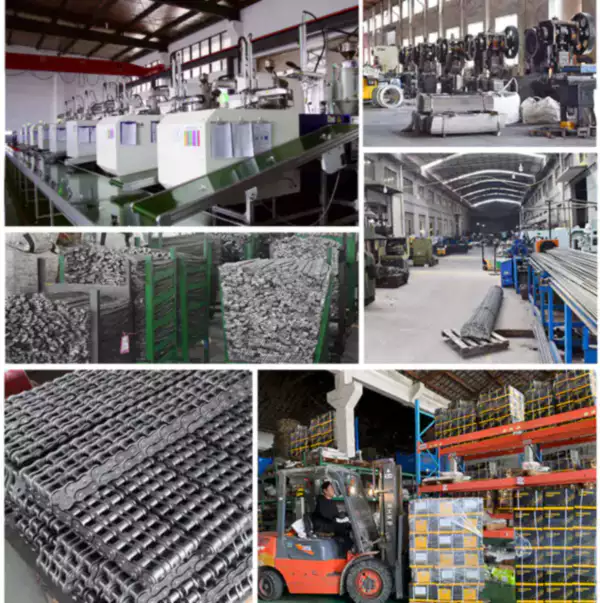Introduction
Gripper chains play a crucial role in various industrial applications, especially in extreme environmental conditions. Selecting the right gripper chains for such conditions is essential to ensure optimal performance and longevity. In this article, we will explore the factors to consider when choosing gripper chains for extreme environmental conditions.
1. Understanding the Environmental Challenges
In extreme environmental conditions, gripper chains face unique challenges that can affect their performance. These challenges include high temperatures, corrosive substances, and abrasive materials. By understanding these challenges, we can select gripper chains that are specifically designed to withstand such conditions.

2. Material Selection
The choice of material for gripper chains is crucial in extreme environmental conditions. It is recommended to opt for materials with high corrosion resistance and temperature tolerance. Stainless steel and specialized alloys are commonly used for their durability and ability to withstand harsh environments.
3. Lubrication and Coating
Proper lubrication and coating are vital for enhancing the performance and durability of gripper chains in extreme conditions. The lubricant should be resistant to high temperatures and corrosive substances. Additionally, applying a protective coating on the chains can provide an extra layer of defense against abrasion and chemical exposure.

4. Design Considerations
The design of gripper chains can significantly impact their performance in extreme environmental conditions. It is crucial to choose chains with features such as reinforced links, specialized attachments, and optimized geometry. These design elements ensure better load distribution, increased strength, and improved resistance to wear and tear.
5. Maintenance and Inspections
Regular maintenance and inspections are essential to keep gripper chains in optimal condition. In extreme environmental conditions, it is recommended to have a proactive maintenance schedule to identify any signs of wear, corrosion, or damage. Timely repairs or replacements can prevent costly downtime and ensure continuous operation.

Gripper Chains Purchasing Guide
| Factor | Considerations |
|---|---|
| Environmental Conditions | Identify the specific challenges the gripper chains will face. |
| Material | Choose materials with high corrosion resistance and temperature tolerance. |
| Lubrication and Coating | Select appropriate lubricants and consider protective coatings. |
| Design | Look for reinforced links, specialized attachments, and optimized geometry. |
| Maintenance | Establish a proactive maintenance schedule for regular inspections. |
Sprockets for Gripper Chains
Sprockets and gripper chains are interdependent components in industrial applications. The selection of suitable sprockets is essential to ensure smooth and efficient operation. Gripper chains rely on sprockets to transmit power and maintain proper tension. At our company, we provide a wide range of sprockets that are specifically designed to complement our gripper chains.

Our sprockets are manufactured using high-quality materials and advanced manufacturing techniques. They are designed to match the specifications and performance requirements of our gripper chains. With precise tooth profiles and durable construction, our sprockets ensure reliable power transmission and minimize wear on the chains.
Our Advantages
- Extensive experience in gripper chain manufacturing.
- High-quality materials for superior durability.
- Advanced manufacturing techniques for precise and reliable products.
- Customizable solutions to meet specific application requirements.
- Efficient customer support and timely delivery.

Q&A
Q: Can gripper chains withstand extreme temperatures?
A: Yes, gripper chains designed for extreme environmental conditions are engineered to withstand high temperatures through the use of specialized heat-resistant materials and coatings.
Q: What maintenance practices should be followed for gripper chains?
A: Regular maintenance practices include lubrication, visual inspections for signs of wear or damage, and proactive replacement of worn-out components to ensure optimal performance and longevity.
Q: Are gripper chains suitable for corrosive environments?
A: Absolutely. Gripper chains made from corrosion-resistant materials, such as stainless steel and specialized alloys, are specifically designed to withstand corrosive environments and maintain their performance over time.
Edited by Zqq.
